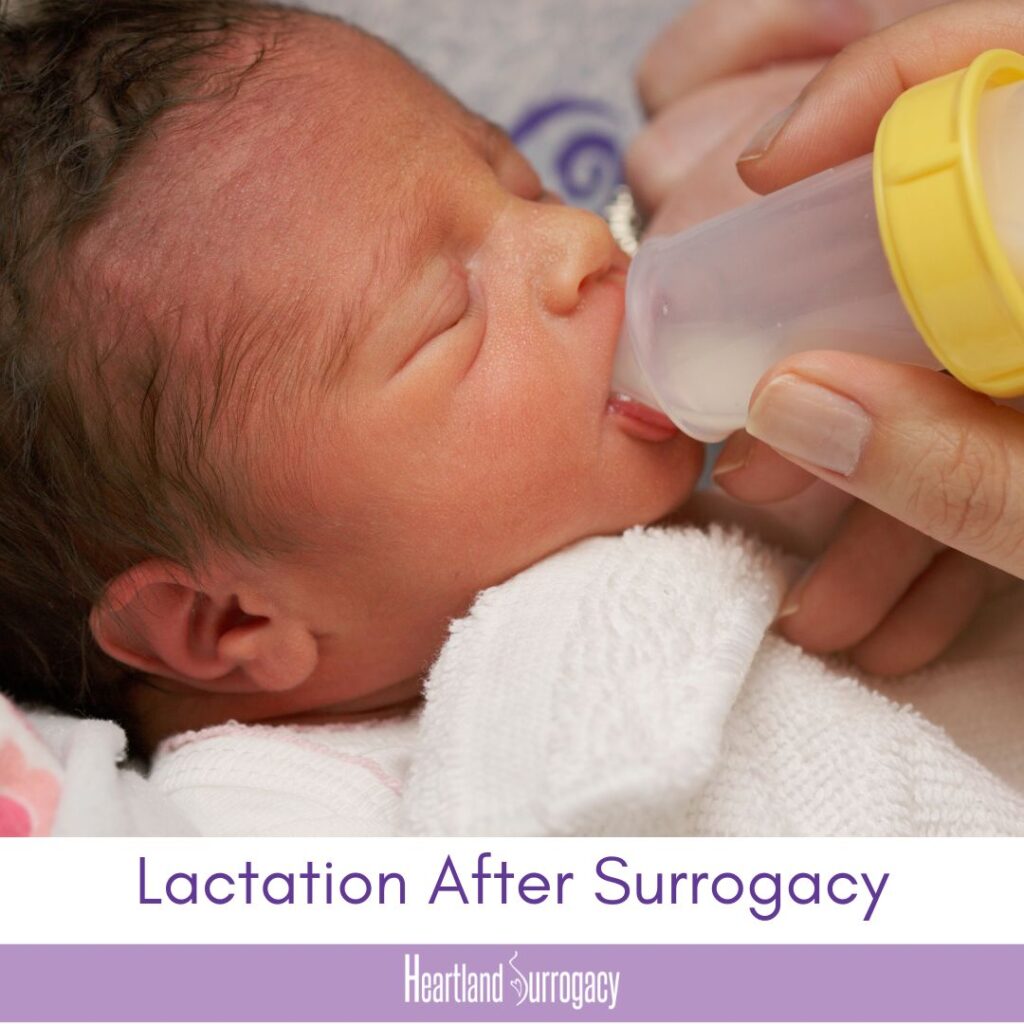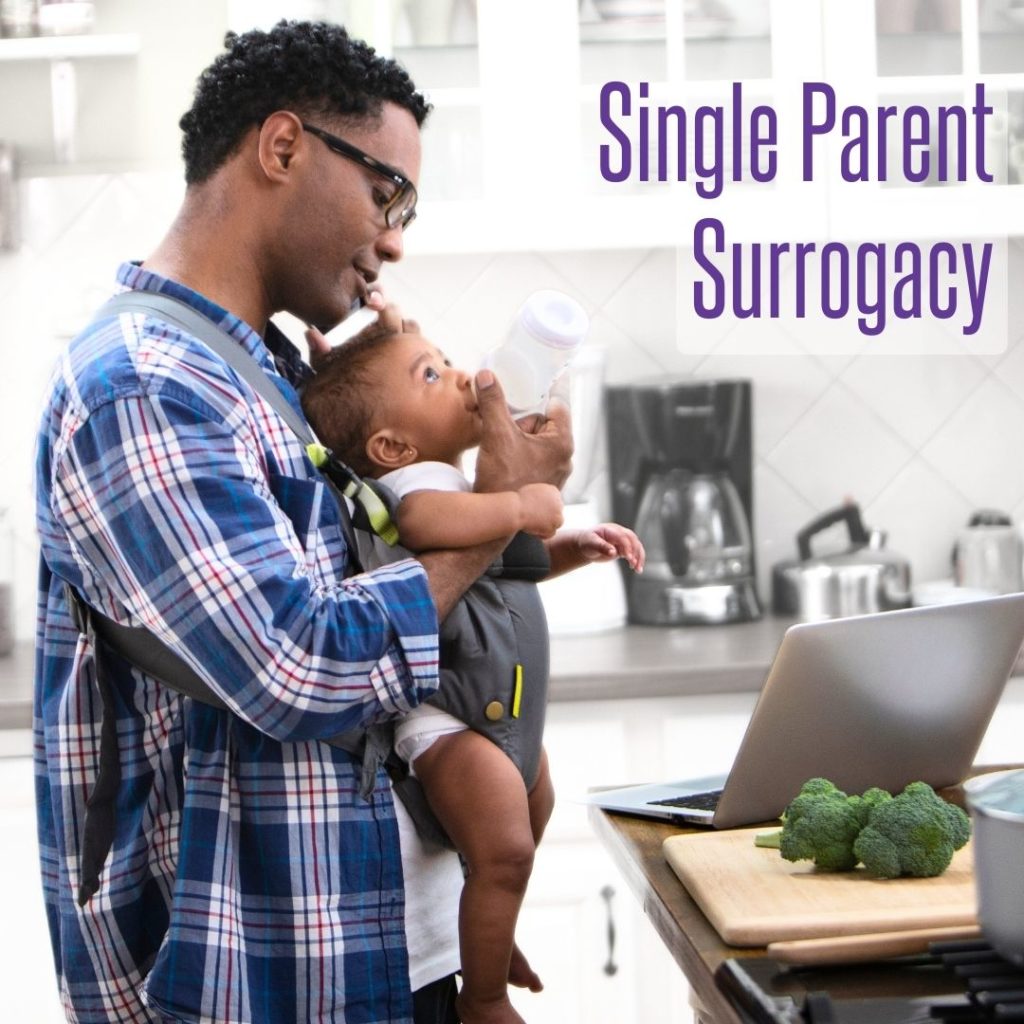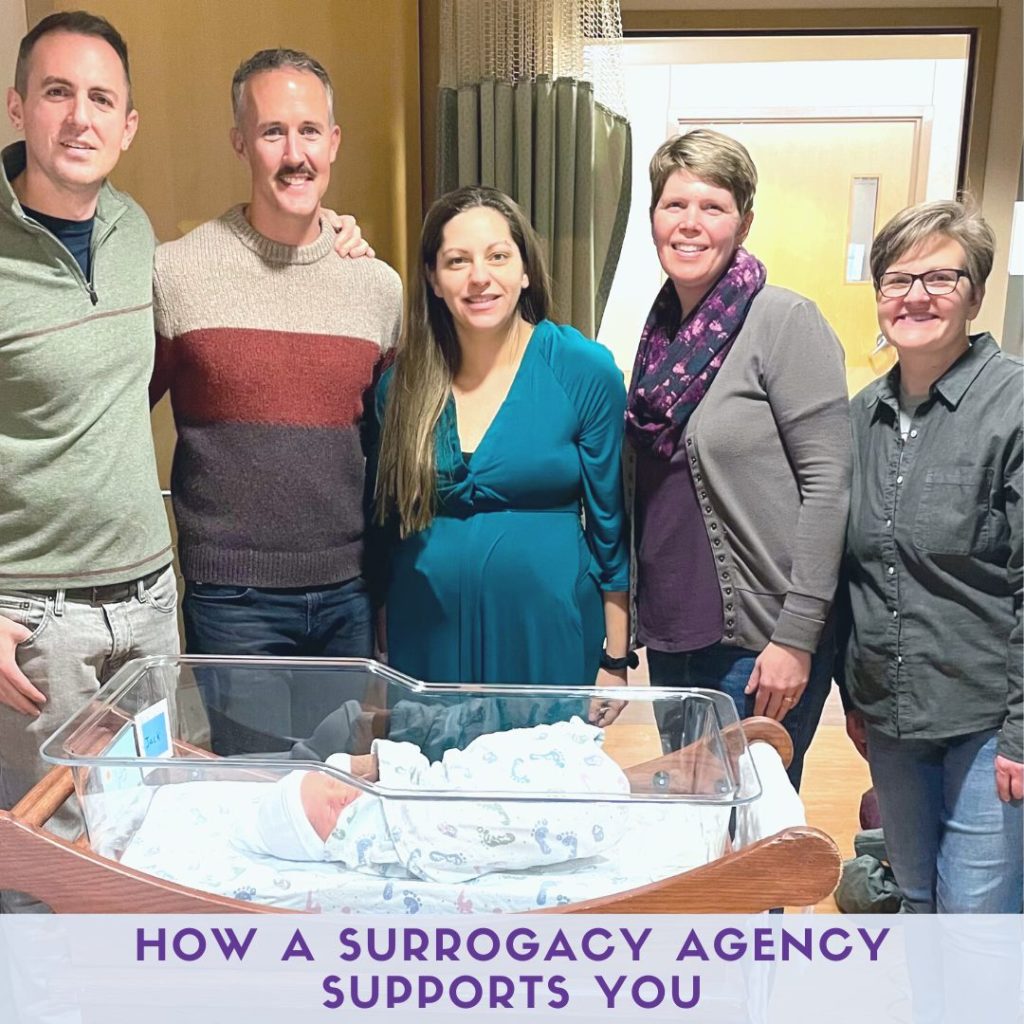
The journey of surrogacy is emotional for everyone involved. Emotions can run high during many parts of the process: getting matched, starting IVF, waiting to find out if the pregnancy will hold, delivery, and presenting the IPs with the gift of life. If complications arise, the team may also be faced with miscarriage or other pregnancy complications.
Emotional support is important for IPs and surrogates alike. Intended parents often go through a long road of fertility obstacles before deciding on surrogacy. Gay intended parents have the added stresses that are specific to the GLBT community. Seeking infertility support groups and/or individual mental health care can help parents through the emotional ups and downs of surrogacy.
Gestational carriers will endure the side effects of pregnancy hormones while caring for their family and possibly working or going to school. While carriers typically enjoy pregnancy, this does not always exempt them from mood swings and other taxing pregnancy discomforts. While it can be helpful to chat (or vent!) with other pregnant women, surrogates are in a unique situation that can make connecting with others difficult. We advise surrogates to keep all mental health appointments, get help from their partner or other family members for household responsibilities, and take the time to rest whenever possible. Maintaining open communication with the IPs will also strengthen that connection and be a pleasant reminder of the reason for the surrogate’s sacrifice.
Support and cooperation from the surrogate’s partner, if applicable, is crucial. The partner will also undergo background checks and a psychological review. Once the pregnancy is underway, the partner can be supportive in the same manner as with other pregnancies: by making an effort to complete more household chores and childcare. After delivery, the surrogate will need continued emotional support as she recovers from her incredible journey.




